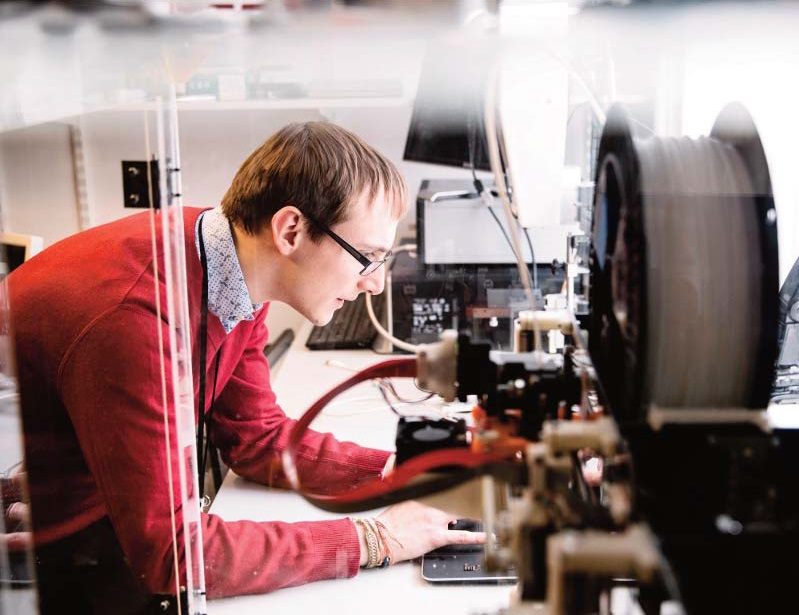
Company of the Month – MediSieve
In February 2019 we featured MediSieve as our Company of the Month. The company, which has developed a unique blood filtration device to treat sepsis and malaria, had undergone a rapid phase of growth. Since it spun out from (Founder and CEO) George Frodsham’s UCL PhD project in 2015, the team had grown to six and was on the cusp of welcoming four more recruits. This month, we revisit MediSieve as it continues to grow and takes on another new challenge – tackling COVID-19.
The MediSieve technology was developed by CEO George Frodsham during his PhD at UCL. By filtering for magnetic particles, the device aims to target and remove harmful cells, bacteria, toxins, and inflammatory cytokines directly from a patient’s bloodstream.
Initially focused on treating sepsis, the device would aim to control a patient’s immune response by removing inflammatory cytokines from the bloodstream. Working in a similar way to a dialysis machine, the patient’s blood would be infused with magnetic particles to allow the target cells to be filtered out of the bloodstream, before being returned to the patient’s body.
When we spoke to George last year, the team were focused on progressing towards trials of the device for sepsis, as well as malaria, where the aim is to remove the disease’s naturally magnetic cells from a patient’s bloodstream.
Refocusing to treat COVID-19
Fast forward to 2020 and the COVID-19 pandemic, and MediSieve, now with a team of 12 and still growing, quickly saw the potential for the device to help treat COVID-19 patients. As data began to show a pattern of high levels of the inflammatory cytokine interleukin 6 (IL-6) in the blood of COVID-19 patients, the team looked at how their technology could be used in response.
Although cytokines are a normal part of the body’s immune response, severe immune reactions can cause high levels of cytokines in the blood (known as cytokine storms). This in itself can cause organ failure and, potentially, death. It is this over-reaction of the immune system that the MediSieve device aims to address in sepsis patients, and the team quickly identified a parallel in how it could treat COVID-19.
“The current treatment for excess levels of IL-6 in COVID-19 patients involves drugs that supress or block the immune system,” explains Dr Cristina Blanco-Andujar, Chief Technology Officer at MediSieve. “But it’s not ideal to give someone who is trying to fight an infection a drug that subdues the immune system and remains in the body. We want to use our technology to tune that approach so we can remove IL-6 at the time it is causing harm, but then stop this process as soon as cytokine levels are manageable so the patient’s immune system can continue to function.”
MediSieve are now focusing exclusively on developing their treatment for COVID-19 and hope to do pre-clinical safety trials in animals later this year, with clinical trials planned for next year.
“It’s nice to be able to play our part towards fighting the pandemic,” says George “and having the team focused towards that one common goal has helped us to accelerate our work”.
The team have also been helping tackle other aspects of the pandemic, and now have 3D printing components for personal protective equipment (PPE), in response to a call to redeploy equipment and facilities.
Funding R&D
The company has been successful in the past at raising investment. It raised over £2 million in funding and investment in its first four years, with an initial wave of angel investment, a Pathfinder Award from the Wellcome Trust, an Innovate UK Smart Proof of Concept award and two further Innovate UK grants.
Now, to accelerate the research and development process for their COVID-19 treatment, they have received top-up funding from Innovate UK and have also applied for funding from UK Research and Innovation (UKRI).
“It’s a tough climate right now to be looking for funding, as lots of funding streams have been cut and there’s a lot of uncertainty,” says George, “but funders have been receptive so far. I’d like to think that’s because we’ve been able to prove that the technology has a lot of promise, rather than me being particularly good at ‘pitching’. As a company we strongly believe that the most important thing we can do is focus on perfecting our technology rather than our sales pitch.”